Argentina polls: All to play for the presidency
- Published
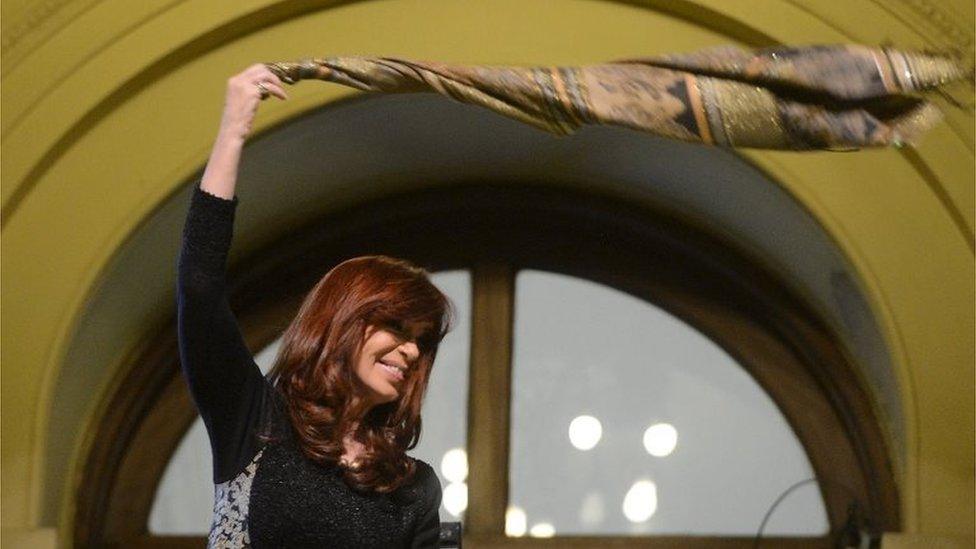
The polls spell the end of the Kirchner era as President Cristina Fernandez cannot run for president again
For more than 12 years, Cristina Fernandez de Kirchner has been at the centre of Argentine politics.
First as the wife of late President Nestor Kirchner, who governed the country between 2003 and 2007, and then for the following eight years as president herself.
Barred by the constitution from running for a third consecutive term, her time in the Casa Rosada presidential palace is now coming to an end.
In the run-off election on Sunday, voters will have to choose who they want as her successor: Daniel Scioli or Mauricio Macri.
Front-runner
With the backing of President Fernandez and her Front for Victory party, Daniel Scioli had been the favourite to win the first round four weeks ago.
He did, but with a smaller margin than had been expected.
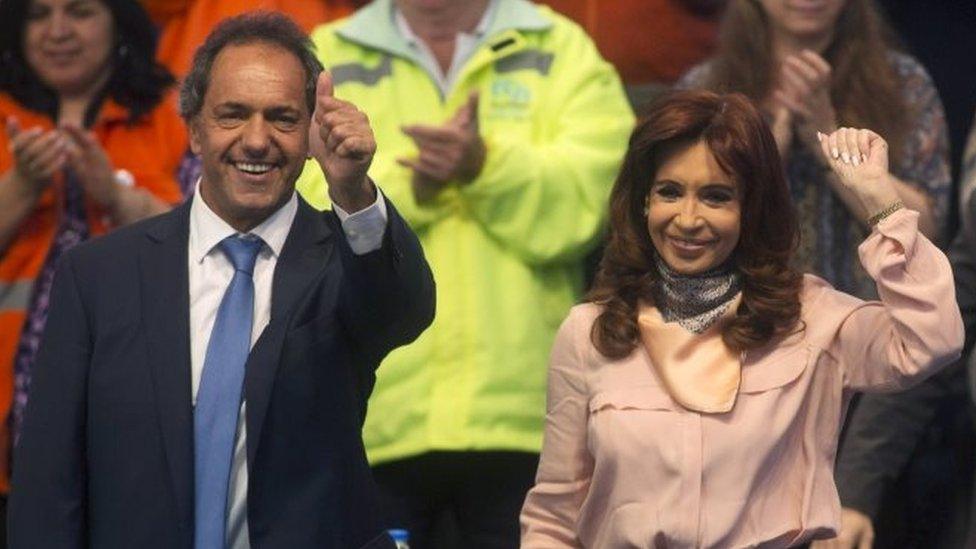
Daniel Scioli enjoys the backing of President Cristina Fernandez
Mr Scioli is no newcomer to politics.
Since 2007, he has been the governor of Buenos Aires province, considered one of the most influential posts in Argentine politics.
Before that, he was vice-president in Nestor Kirchner's cabinet.
But Mr Scioli was not always the obvious choice for presidential candidate. For years, Front for Victory hardliners regarded him as a follower of free-market policies and criticised him for being too centre-right.
But being in charge of the largest electoral district in the country, complete with a vast public budget and huge media exposure, meant he became their chosen candidate even before the party's primaries were held.
If he wins, Argentina will have another leader from the Peronist tradition, the working-class political movement based on the legacy of former President Juan Domingo Peron.
Team player?
Mr Scioli has been plotting his campaign strategy from his luxurious house in Buenos Aires province.
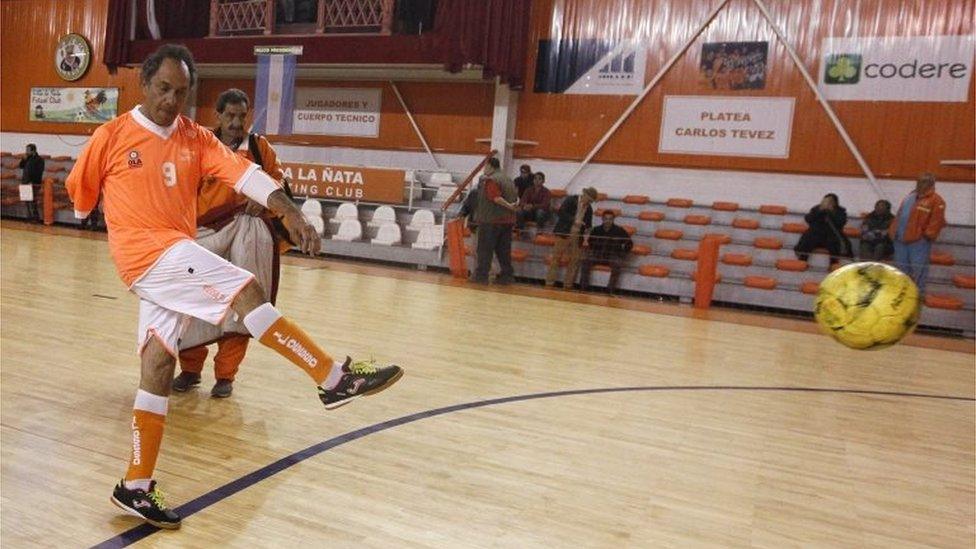
Mr Scioli, a keen sportsman, lost his right arm racing speedboats

He won several world offshore powerboat racing championships in the 1990s
He says he wants to continue most of President Fernandez's most popular policies, such as the government's social programmes for Argentina's poor.
But he is also keen to rebuild relations with sectors with which Cristina Fernandez quarrelled, like litigating foreign debt holders, the agriculture sector and the United States.
Apart from politics, Mr Scioli has another passion.
Next to his house, he has built his own private indoor football pitch. There, he plays most weekends with his team mates from professional league La Nata Sporting Club.
He has invited some other football-mad Latin American politicians such as Evo Morales to the matches, and is not shy about praising his own footballing skills.
"Look the BBC have come to see me because Manchester United have expressed an interest in signing me up," he jokes in the locker rooms.
But coach Guillermo Freire puts him in his place: "You haven't won a match in ages, be a good team player and pay attention to my instructions."
'Let's change!'
Buenos Aires Mayor Mauricio Macri, 56, would also love to put Mr Scioli in his place.
Mr Macri is standing for Cambiemos (Let's Change), a coalition of anti-Peronist parties.
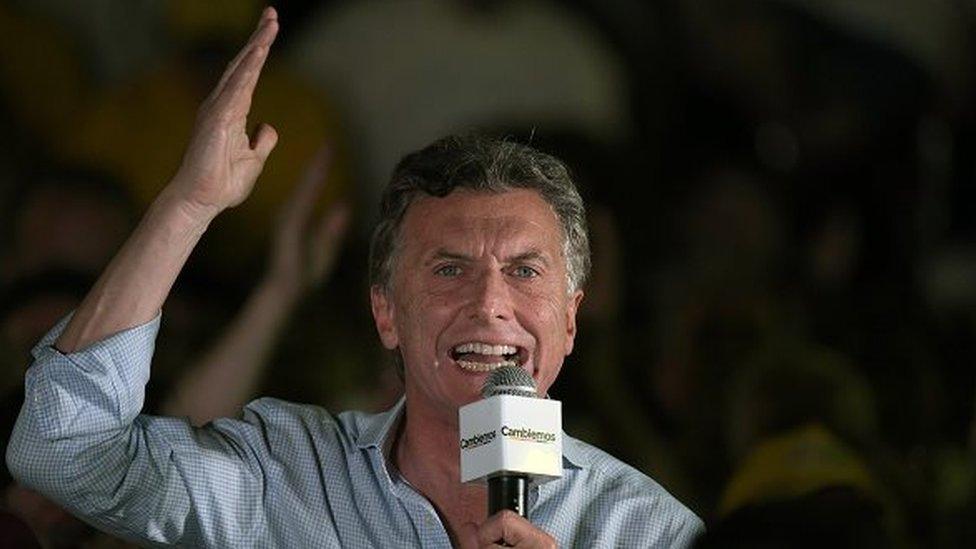
Mauricio Macri is promising change and a departure from Peronism
And while he came second to Mr Scioli in the first round, he hopes that by uniting all opposition votes behind him in the run-off, he will have a chance at the top job.
Mr Macri, has already succeeded in building an unlikely coalition consisting of the social-democratic Radical Civic Union, the liberal Civic Coalition and his own party, the centre-right Republican Proposal.
The son of one of Argentina's richest men, Mr Macri was already signing business deals aged 24 with US tycoon Donald Trump.
In 1991, he was kidnapped and kept captive for 12 days by a gang of corrupt policemen demanding millions in ransom.
Four years later, he became president of Boca Juniors Football Club and soon used his success at the club as a springboard for his political career.
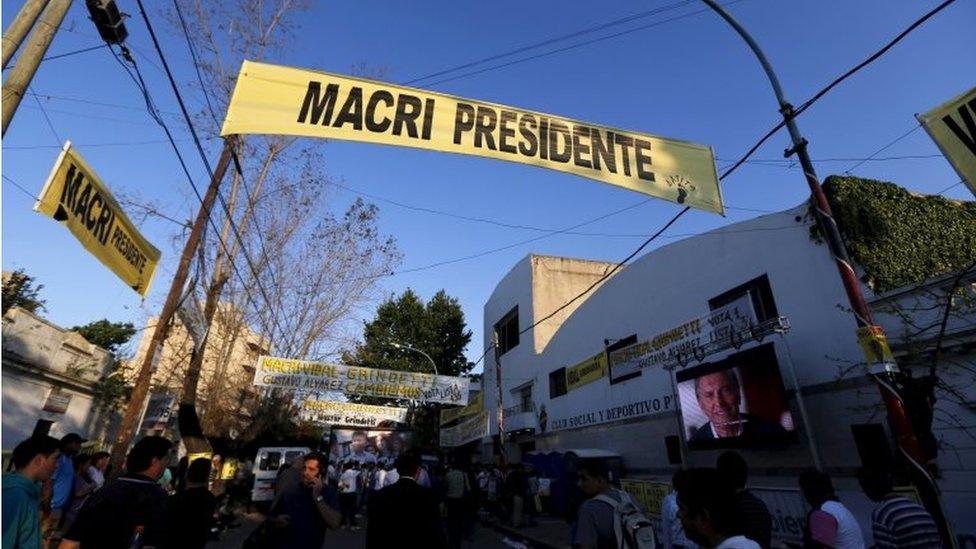
Mr Macri has been trying to win over votes from poorer backgrounds, as well as wealthy residents of the capital
He has recently tried to distance himself somewhat from his privileged upbringing, campaigning in Argentina's least developed areas.
In an attempt to win the votes of Argentina's poorest, he has devised an ambitious infrastructure plan and promised to further boost current welfare programmes.
But he has also said that swift and radical economic changes would have to be implemented to win back market confidence.